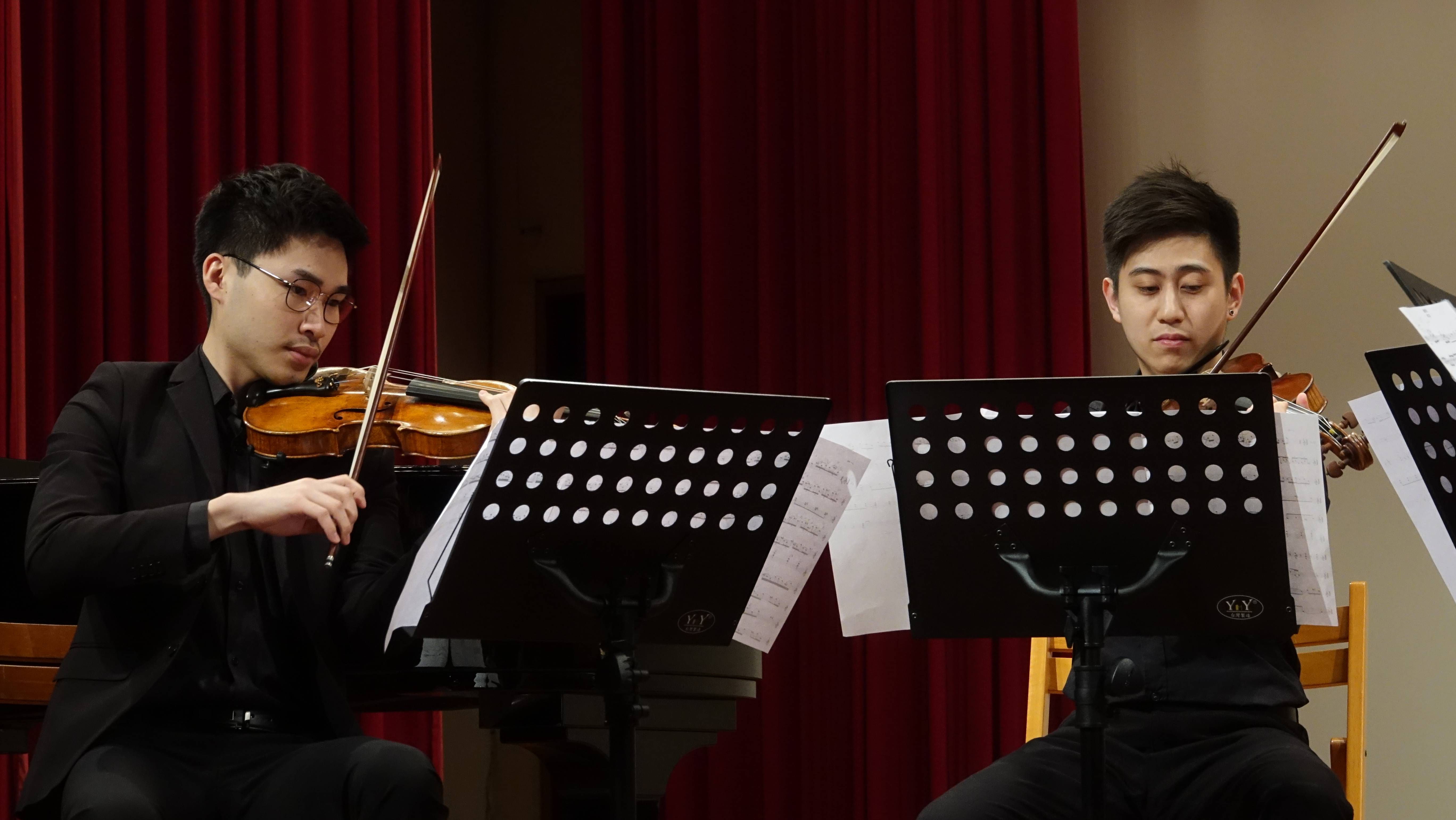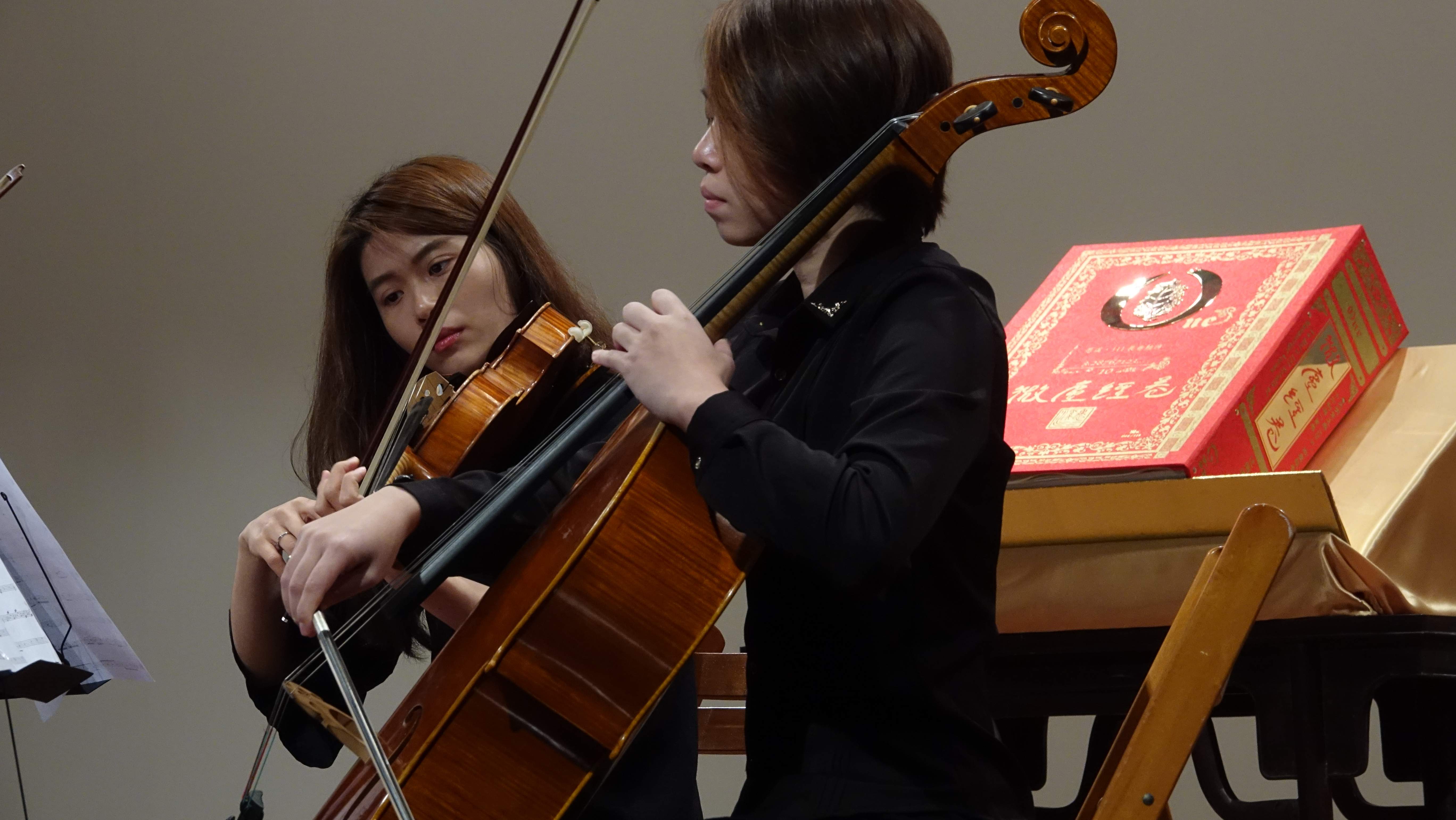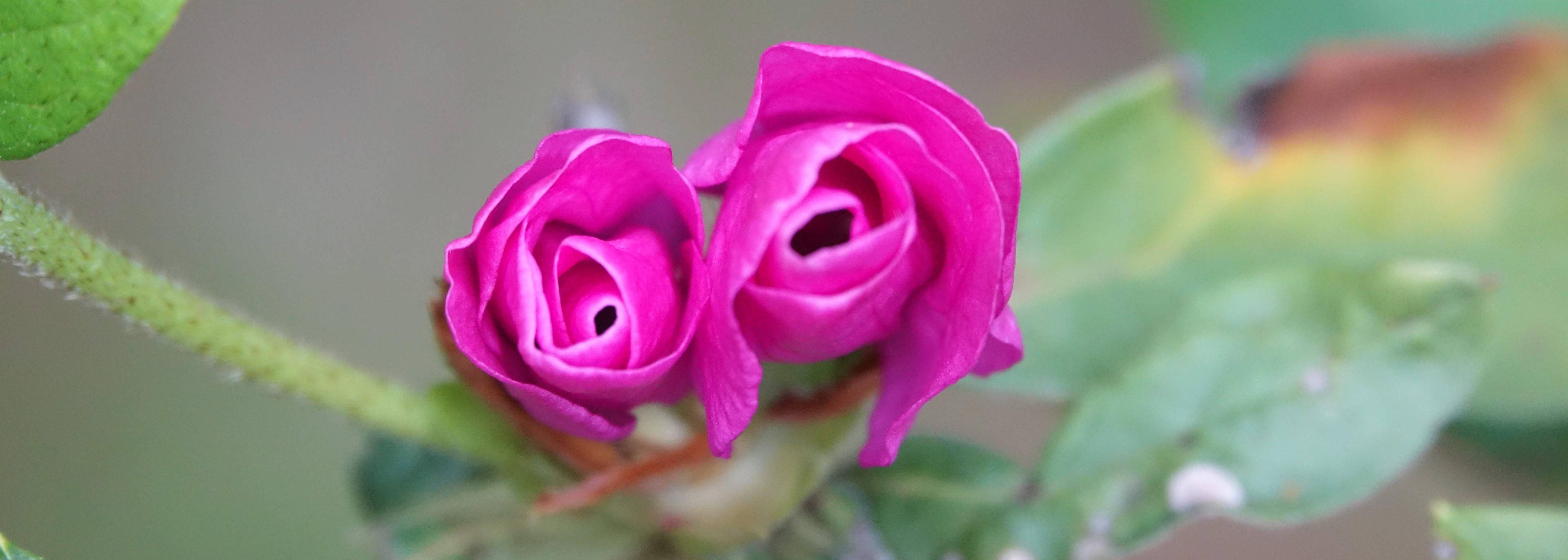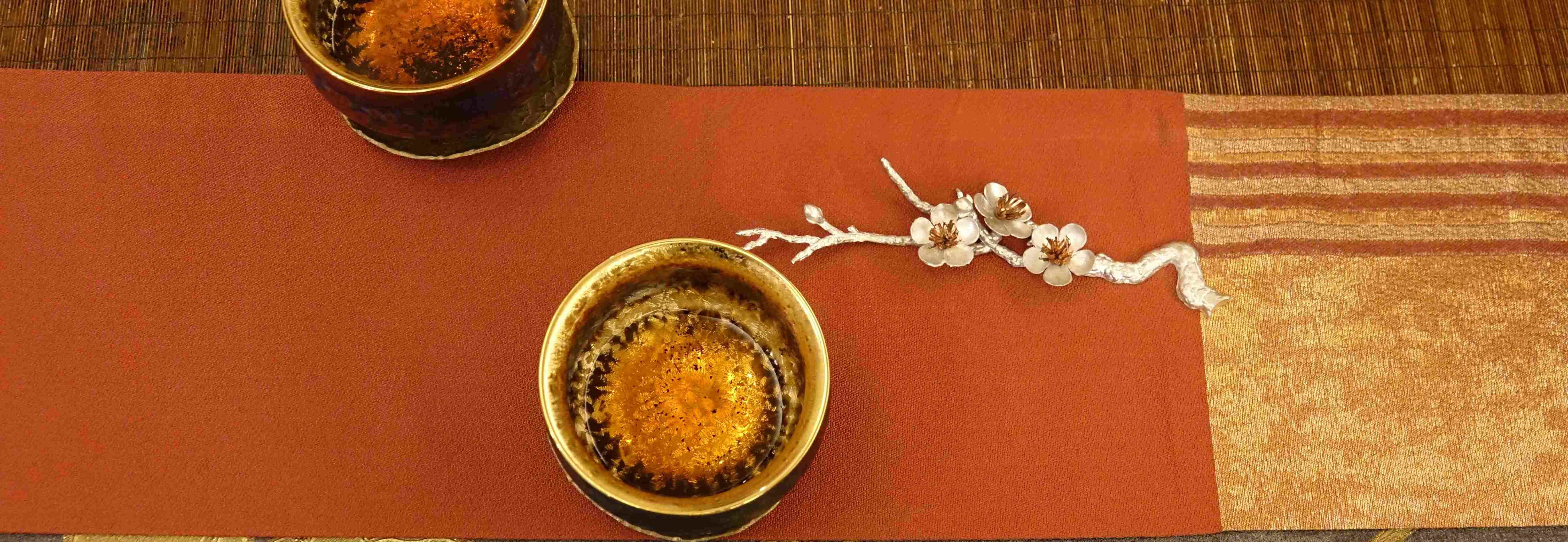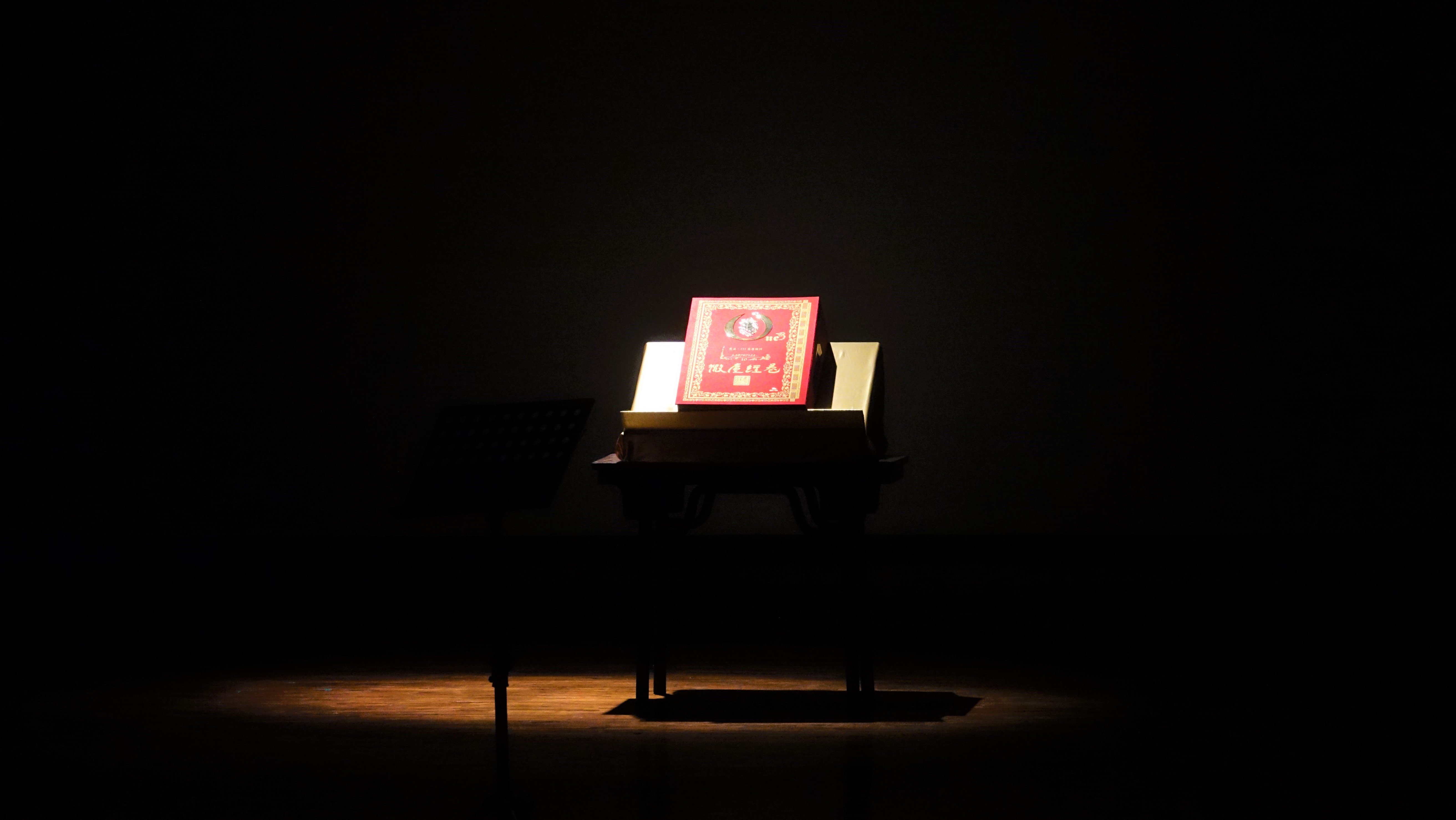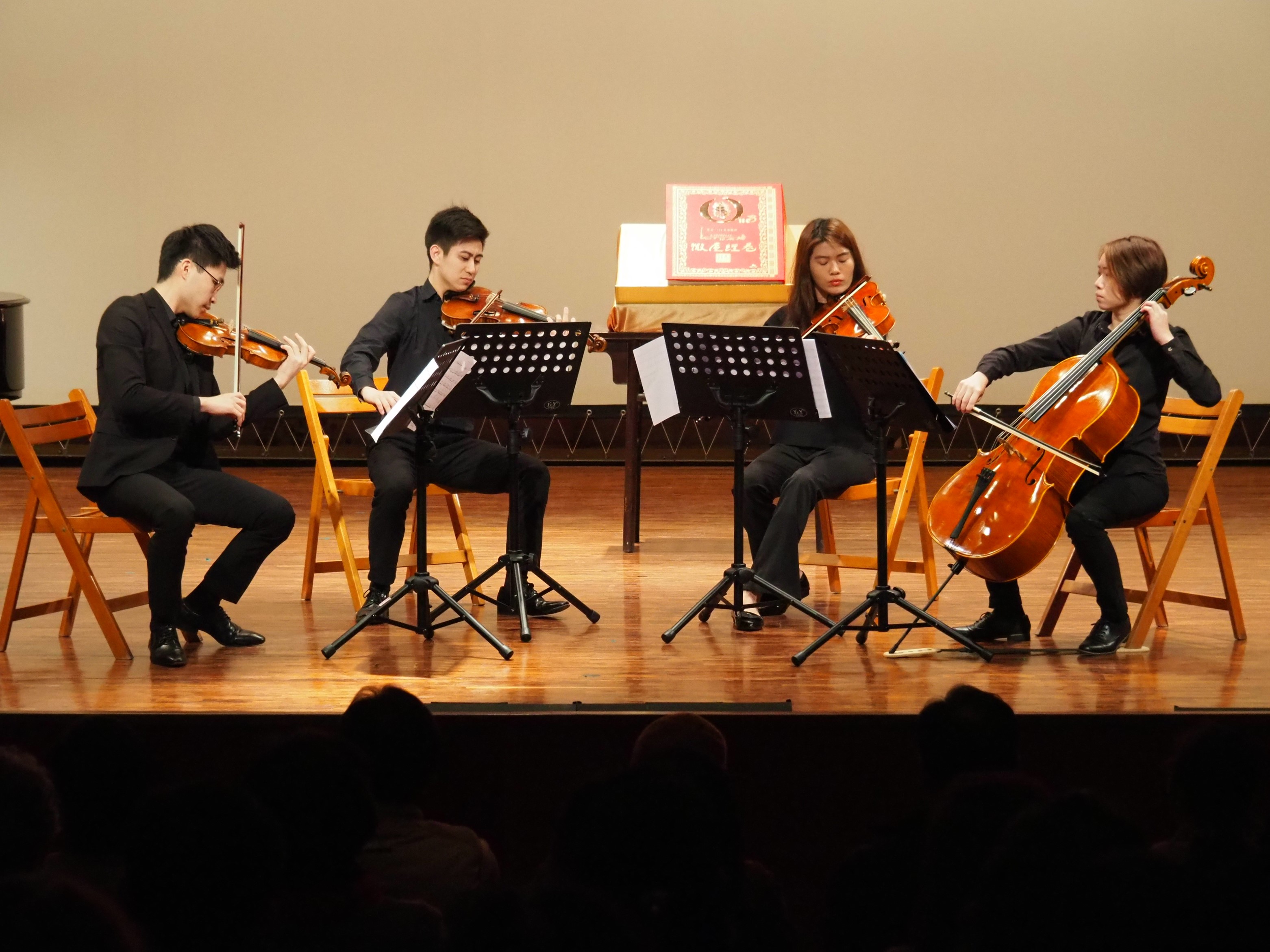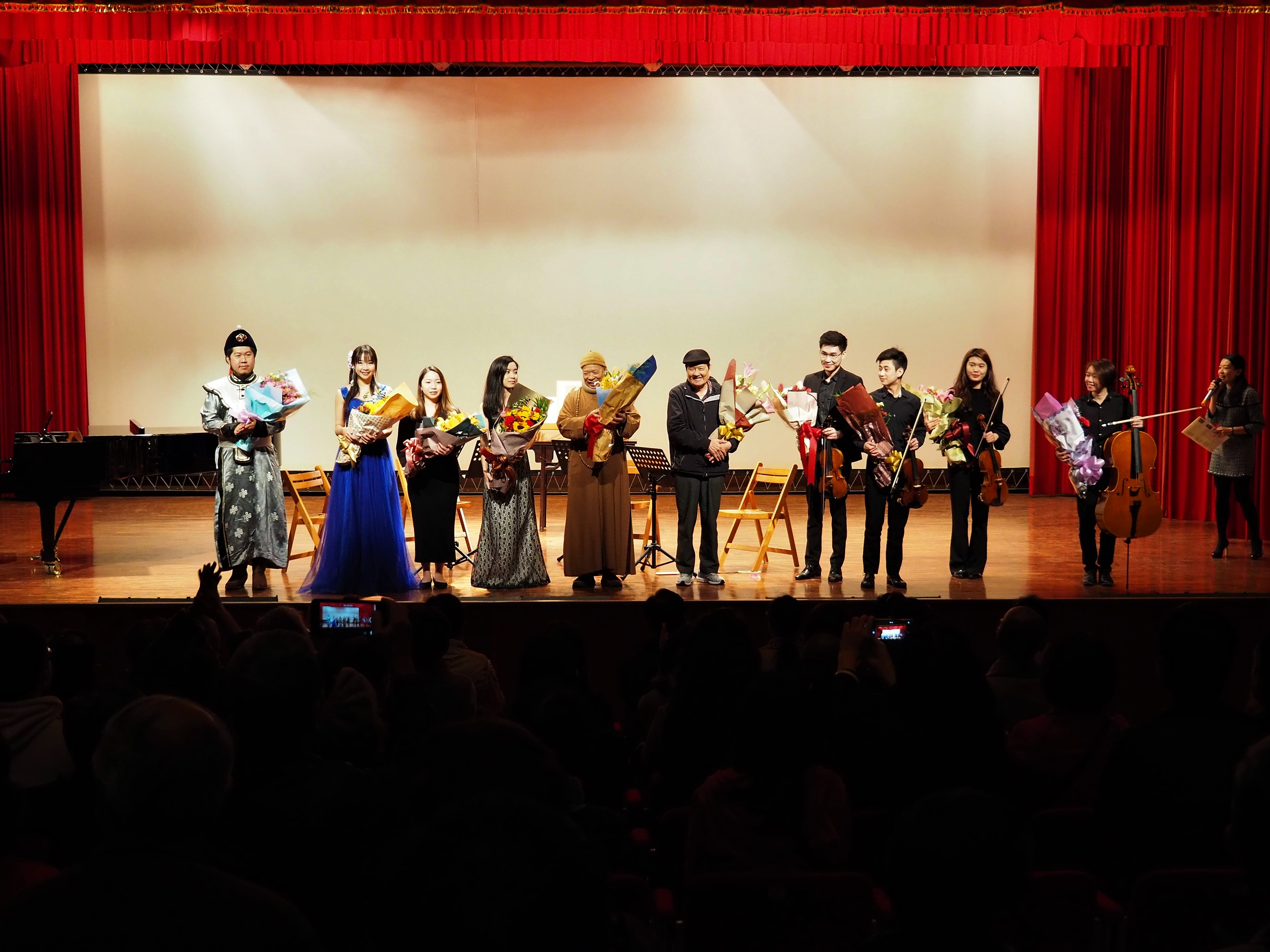Origin- In 1967, the founding father of Vandana Monastery; Master Chuan-Ching traveled alone to the east coast of Taiwan alongside the pacific ocean. Toil and moil he initiated the “Buddhist Arts” which alter the intricate and obscure Buddhist knowledge into forms of art that appeal to all. Following in the Master’s footsteps, for decades we have witnessed the far-reaching influence the Buddhist art and culture brought us. The Chuan-Ching Master’s heart is as vast as the Pacific ocean. Every spring, we commemorate the great man through the unceasing sounds of waves and melody notes.
On February 24th, 2019 (spring shower in the 24 Solar Terms) commencing the music concert, Dr. Yu Hsi introduced his latest publication, the "Countless Scriptures". Below is a brief introduction to the book:
"Legend has it, that secrets of the universe are hidden within one leaf scroll. When wrapped up, it is small and concealed from daylight; after unrolling, it spreads all over the world.
Dazed by a sunny day, people get loose their way among beautiful landscapes, forgetting where they came from. Lingering on, they get lost on layers of maps covering endless mountains and streams, where one false step makes you forget your way home and get wrapped up in the Bright Purple Jade Book. An ancient book, which is hidden in a grain of sand, somewhere among three thousand galaxies…
In the universe we live in, the time is endless, space is boundless, and both are interfering and coexisting over one Dhvaja. The thirteen-story pagoda is connecting all the Buddhas, bringing all pagodas in the universe together, linking scriptures of Buddhas from past, present, and future, spreading the words of Dharma.
The pagoda is the axis of movement of the Dhvaja. It is the sacred relict of the Buddhas. It contains scrolls of three thousand galaxies. Therefore it is called 'Universe within a leaf scroll'."
Concert Program
1. Béla Bartók: Romanian Folk Dances Composer/ Bartók
2. Prabhūtaratna 袍修羅蘭 Fire- Violin Composer/ Ju-Hsiao Ku
In the all year long dark valley of lotuses, Technicolor Clothed Girl Summons hundreds of birds to bring fire in order to illuminate for the deeply slept Drunk Groveling and makes the sealed lotuses re-blossom their sacredness. Fire can ignite, warm and cheer lives, but it can also bring catastrophe and annoyance to all beings. There are various types of fire; from dull to fierce, from small to the blazing sun. A wise monk once said, "The power of kindness leads us to a brighter realm."

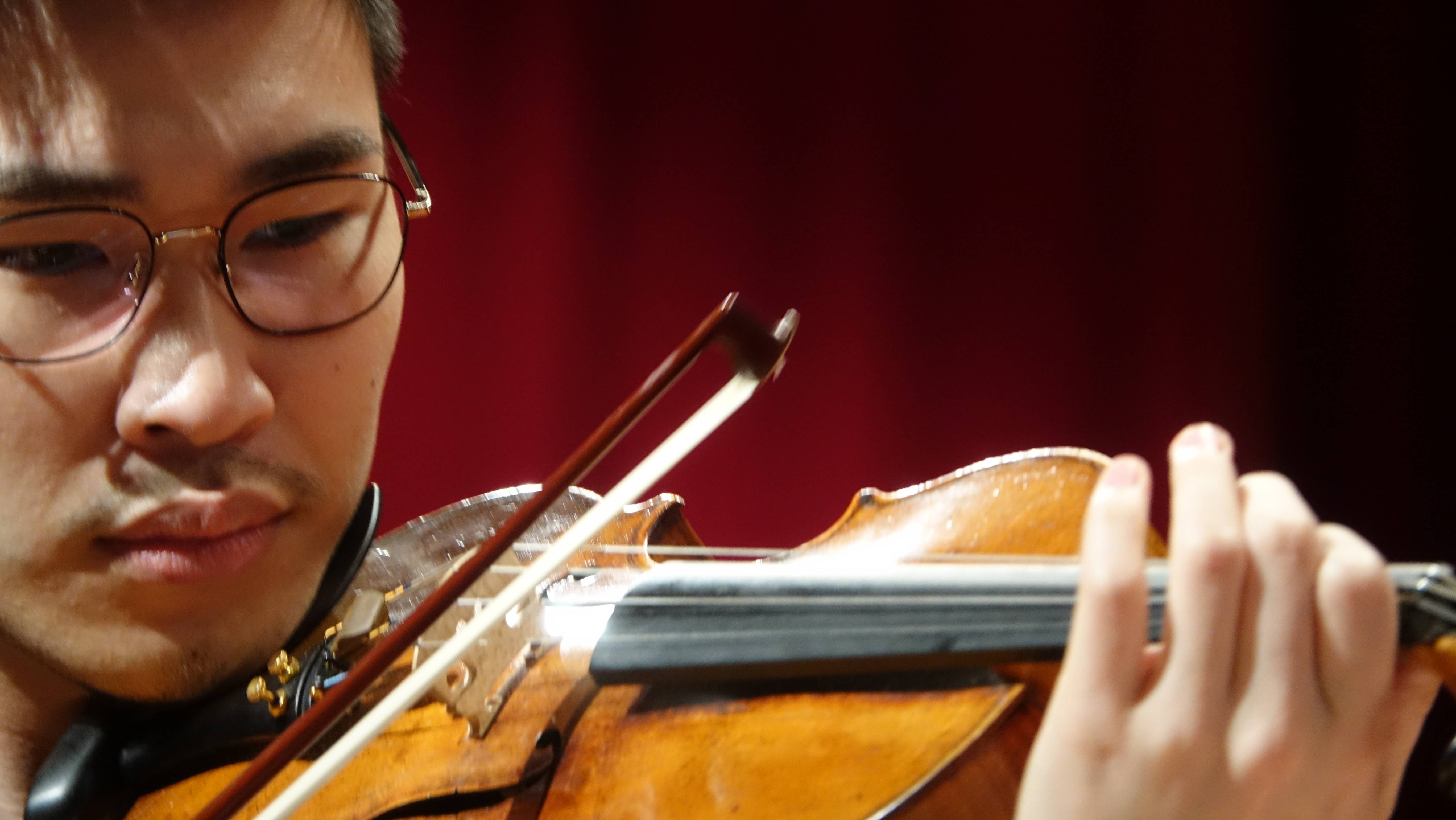
violinist: Tsai-Yu Lin
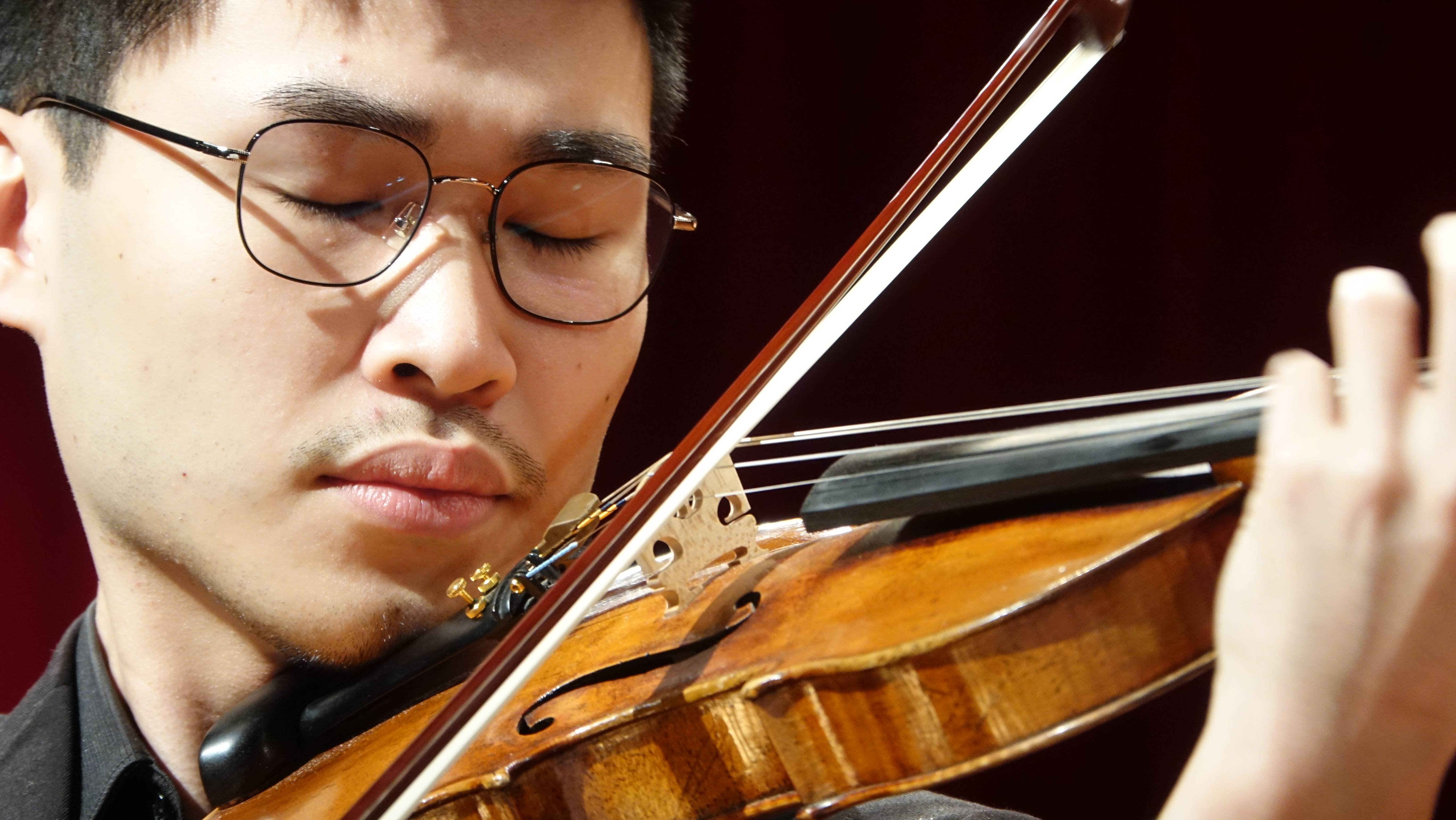
3. Prabhūtaratna 袍修羅蘭 Earth- Cello Composer/ Ju-Hsiao Ku
Expansively and generously nourishing all creatures of the Universe is Earth. The tune attempts to mimic the benevolence of earth by portraying scenery of wisdom enlightening the dark, gloomy skyline as it slowly turns white. Interweaving confusion and vivacity. Somber echos of the bell denote the inspiration of all mortals.
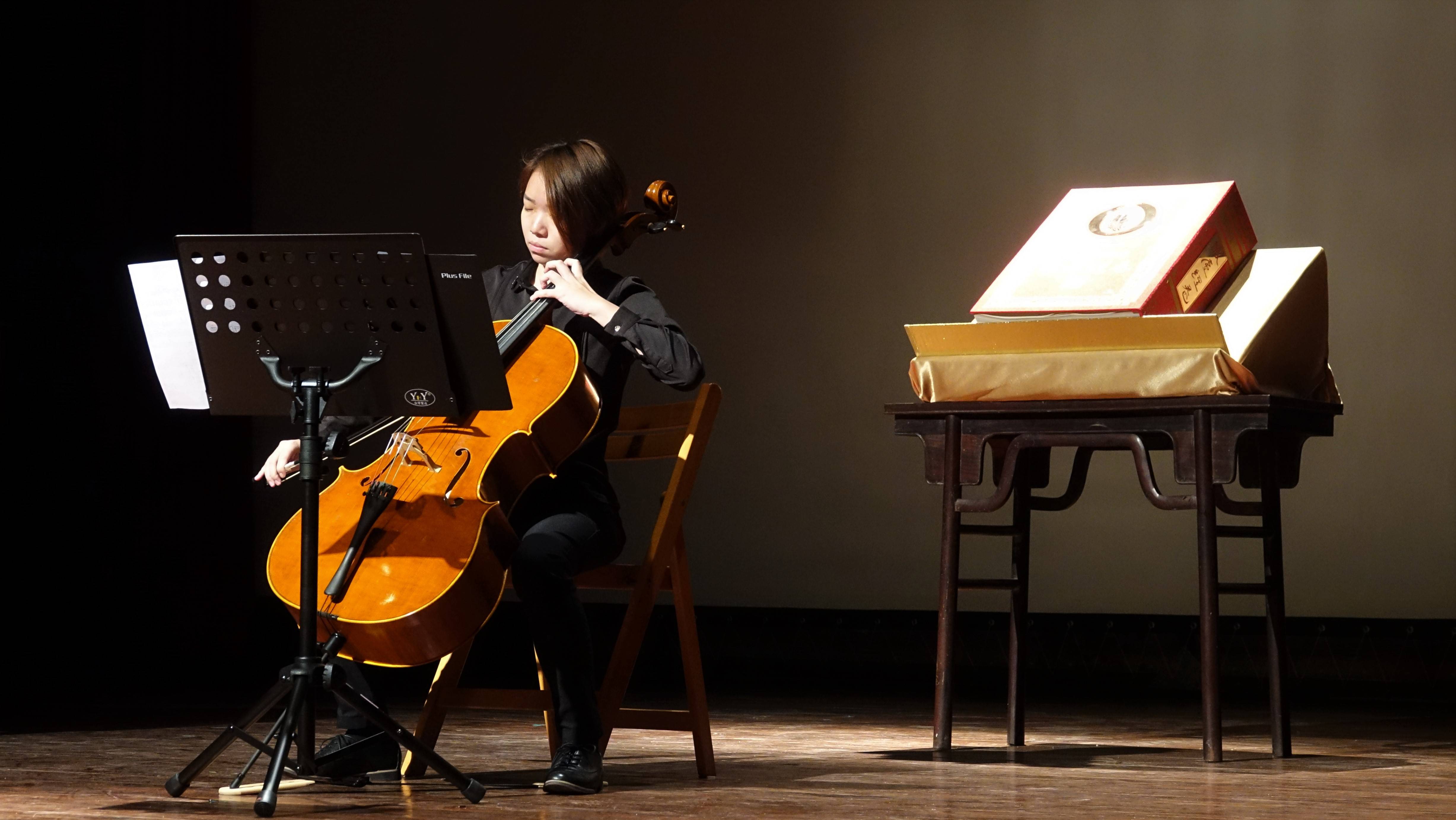
cellist: Hsu-Ya Ting
4. Prabhūtaratna 袍修羅蘭 Water- String Quartet Composer/ Lu-Liang Hui
Hopping from the thick, dense, yet elegant cello of Earth, the Quartet of the four strings presents tingling and fluid melody portraying Miss Water Jade who wears a graceful white gown dancing heavenly ballet. The mid-part of the song turns Allegro, where the music begins to agitate. This is to depict the surge of water. Firstly it sounds like galloping of wild horses and roaring beasts. Then it becomes peaceful and gentle like thousands of rivers finally entering the sea.
5. Prabhūtaratna 袍修羅蘭 Space- String Quartet Composer/ Lu-Liang Hui
Comes and goes per respiration, space. The sharp and intense melody in this tune is meant to awaken the concealed inspiration and magnanimity lying deep in people's minds.
6. Steppes Meet the Ocean (flute, morin kuur, guzheng trio) Composer/ Jantsannorov Natsag
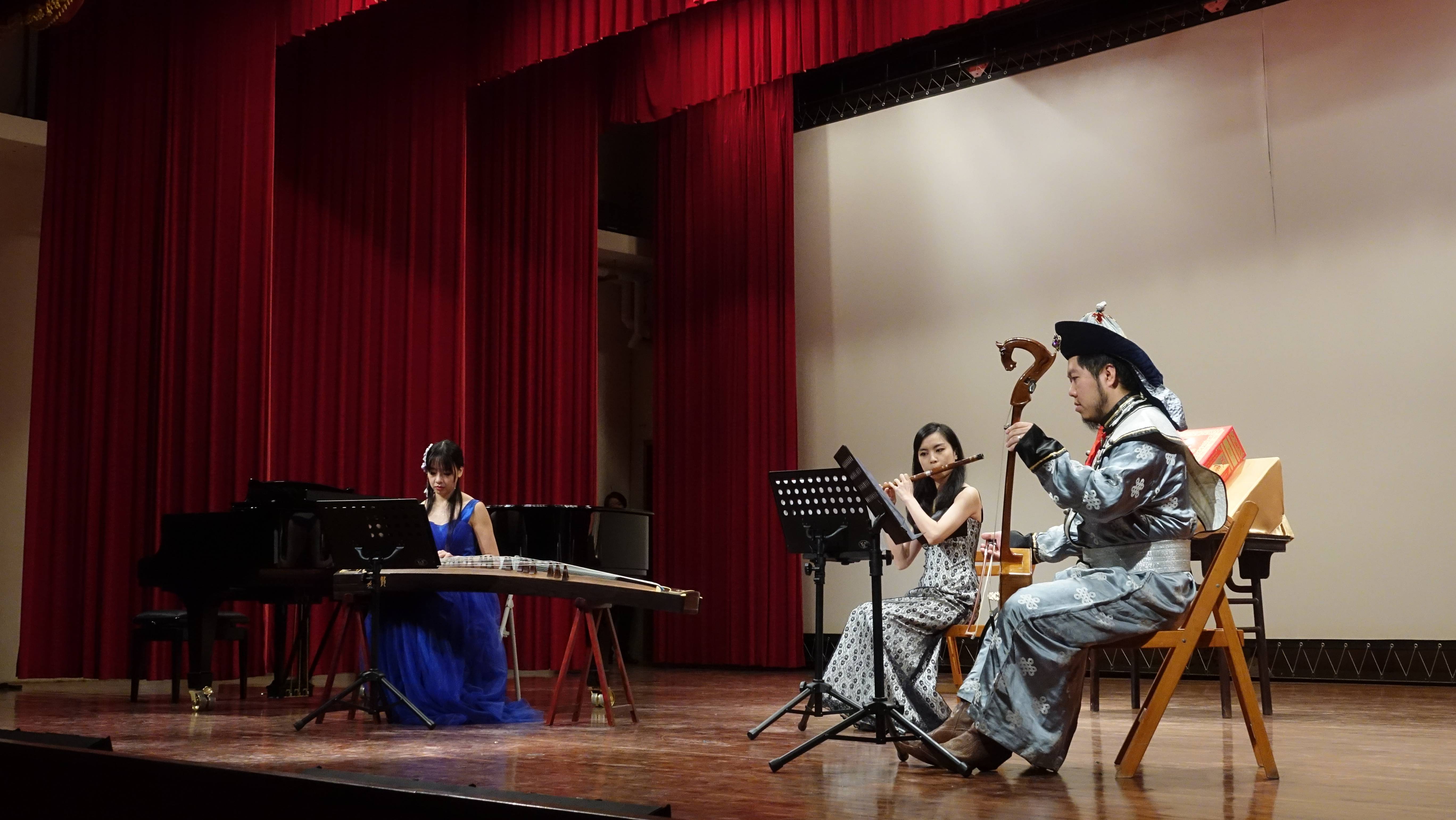
Intermission
1. Prabhūtaratna 袍修羅蘭 Wind- Violin Composer/ Ju-Hsiao Ku
The rondo, chromatic progress characterizes the major part, swift and nimble. The first interception part is cantabile while the second one is dancing. The major part and the interception part are interconnected by passionate music, incessant like the perseverant and brave "Mountain Wanderer" in the story of Prabhūtaratna who travels as gracefully as the wind blows through the mountains.
2. Prabhūtaratna 袍修羅蘭 Perception- Cello Composer/ Ju-Hsiao Ku
3. Jasmine Flower (violin and flute) Arranger/ Lu-Liang Hui
4. Prabhūtaratna 袍修羅蘭 Sight- String Quartet Composer/ Lu-Liang Hui
Lady of Ornaments is the symbol of true and sincere love. Nature generously nurtures her on its utmost beauty. Flowers break out into blossom upon her arrival. A wise monk thus said, "Sincerity is beauty".
5. Prabhūtaratna 袍修羅蘭 Tathāgatagarbha- String Quartet Composer/ Lu-Liang Hui
The first seven movements are Earth, Water, Fire, Wind, Space, Sight, and Perception. These are called the seven basic elements of the universe. Eventually, they are all integrated into the last movement "Tathāgatagarbha"; that is, Prabhūtaratna. Just as all water flows to the sea, questing for the ultimate source of life. Since Prabhūtaratna is the summit of lives and the absolute truth, the last movement is the most important of the whole piece. Prabhūtaratna's music image is expressed by two themes. The initial introduction is crescendo and as it grows from low to high, inducing the very powerful, momentous and royal first theme. After the development and connective passage enters the solemn, vast, and chanting second theme.
